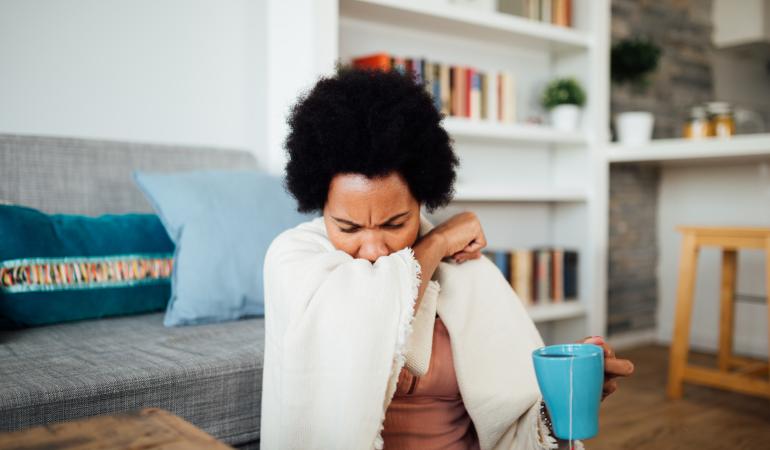
The number of people in the Netherlands with respiratory symptoms continues to increase. Besides COVID-19 and rhinovirus, the number of people who have flu is also increasing. We are also seeing more and more people with pneumonia. Some of these cases are caused by the bacteria Mycoplasma pneumoniae. Do you have respiratory symptoms? Follow the recommendations to minimise the spread of these viruses and bacteria. This also helps to protect people who are more at risk if they get a respiratory infection.
The severity of a respiratory infection can range from mild cold symptoms to serious pneumonia. Some people may become seriously ill from a respiratory infection. The respiratory syncytial virus (RSV) can be dangerous to very young children. Viruses like the coronavirus SARS-CoV-2 and influenza (flu) cause an additional risk for older people and for people who have chronic illnesses or severely impaired immunity. However, people without underlying chronic illness or impaired immunity also end up with long-term symptoms from COVID-19. Mycoplasma pneumoniae and pneumococcus are examples of bacteria that can cause severe respiratory infections, such as pneumonia.
What to do if you have respiratory symptoms
If you develop symptoms that could indicate a respiratory infection, follow the recommendations below. By doing so, you can help prevent respiratory viruses and bacteria from spreading. And you will also protect people who are more at risk if they get a respiratory infection.
- Are you ill? Then stay home.
- If you are not ill, but do have symptoms, then work from home if you can. Consult your employer if necessary.
- Cough and sneeze into your elbow.
- Keep your distance from others.
- Avoid contact with people who could become seriously ill from a respiratory infection.
- Impossible to avoid contact (for example because you provide informal care)? Wear a face mask that covers the mouth and nose.
Good hygiene helps to limit the spread of infections and can help keep you from getting infected. Wash your hands often and thoroughly with soap and water, and ventilate indoor spaces.
Latest figures
Besides COVID-19, the number of people who have flu is also increasing. Last week, the number of people with flu-like symptoms rose above the threshold for a flu epidemic for the first time this season. In the Netherlands, the normal threshold for declaring a flu epidemic is if more than 56 in 100,000 people visit their GP with flu-like symptoms for two consecutive weeks, and various sources show that more influenza virus has been detected.
The number of people with pneumonia is also increasing, especially in the age groups of 5–14 and 15–24 years. RIVM monitors the development and spread of respiratory infections and publishes a weekly update on the latest figures on the website.